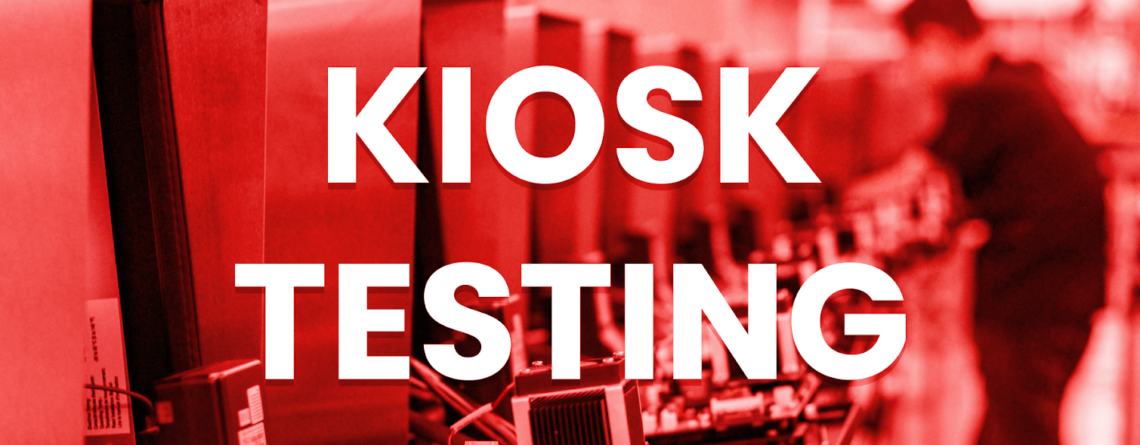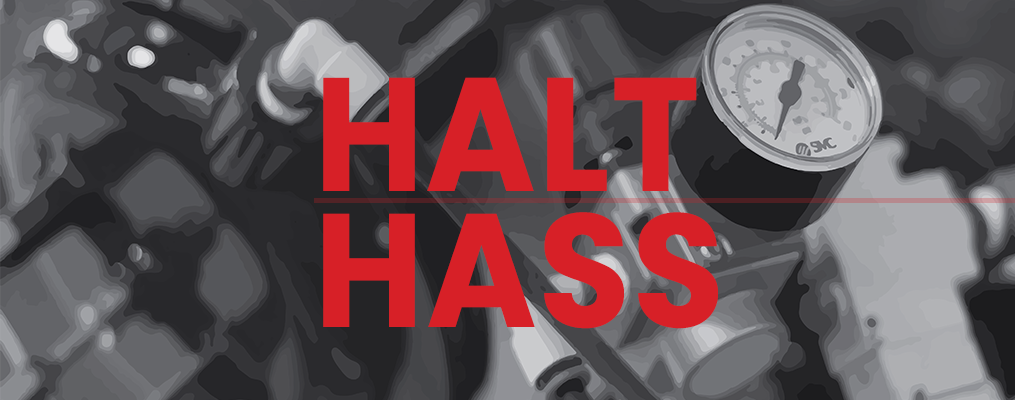Kiosk Reliability Testing: What to Know
aamin@saberdata.com2023-05-12T08:59:13-05:00The coronavirus pandemic has accelerated many changes throughout the world and manufacturing is no exception. Just a decade ago, self-service kiosks were a rare sight, but they’ve steadily made their way into more and more of our everyday landscape from parking lots to grocery stores and beyond. This is in large part due to the need to minimize peer-to-peer contact. With this growing prevalence also comes a greater need to reliability test these devices to ensure they function properly in increasingly varied environments. In light of this, we have created a list of top areas to consider when testing your kiosk devices.
One value-add that Austin Reliability Labs provides is the ability to help design and perform custom testing. We’re always happy to consult with our clients and determine if their specific use case calls for additional test measures.
ENVIRONMENTAL
As kiosks work their way into more and more places, it’s crucial to make sure that their builds can handle end-use conditions. To that end, our most requested tests for kiosks have to be environmental tests. Ingress testing is essential to make sure kiosk builds are sealed correctly to prevent moisture and dust build-up, which can lead to electrical shorts. Ingress testing can also check to see if larger items, such as fingers, can be inserted in places they shouldn’t be – such as fans – which is important for safety testing.
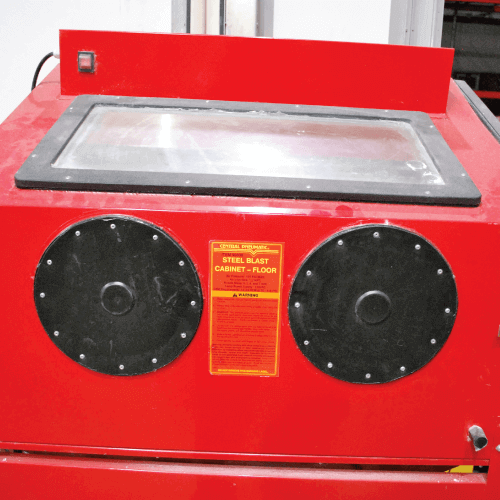
Dust Chamber for Ingress Testing
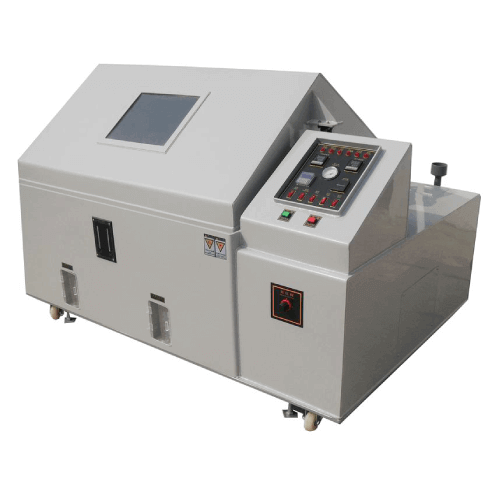
Salt Spray Chamber
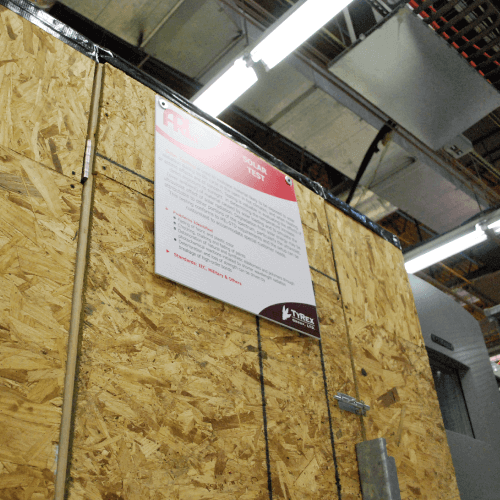
Solar Chamber for Temperature Testing
Corrosion testing like salt fog testing is important to determine if the materials used to build the kiosks can stand up to repeated exposure to corrosive substances, which can range from manufacturing offgassing to everyday household cleaning agents. As our society continues to emphasize a higher dedication to hygiene, determining materials’ corrosion resistance is a must.
A final environmental test that is highly recommended is temperature testing. A common problem with kiosks and other box builds is solar loading, where direct sunlight creates oven-like conditions within the kiosk, harming electrical components. Knowing how your build dissipates heat is essential, especially for outdoor use-cases.
MECHANICAL
Kiosks should be tested to ensure they can withstand not only the rigors of their end use environment, but also the conditions they’ll be subjected to during transportation and deployment. Of course this advice counts double for builds whose end-use environment is involved in transportation, such as ticketing systems and digital signage on vehicles and other transports.
A normal battery of mechanical tests would include shock and vibration testing and, depending on application, impact and hardness testing.
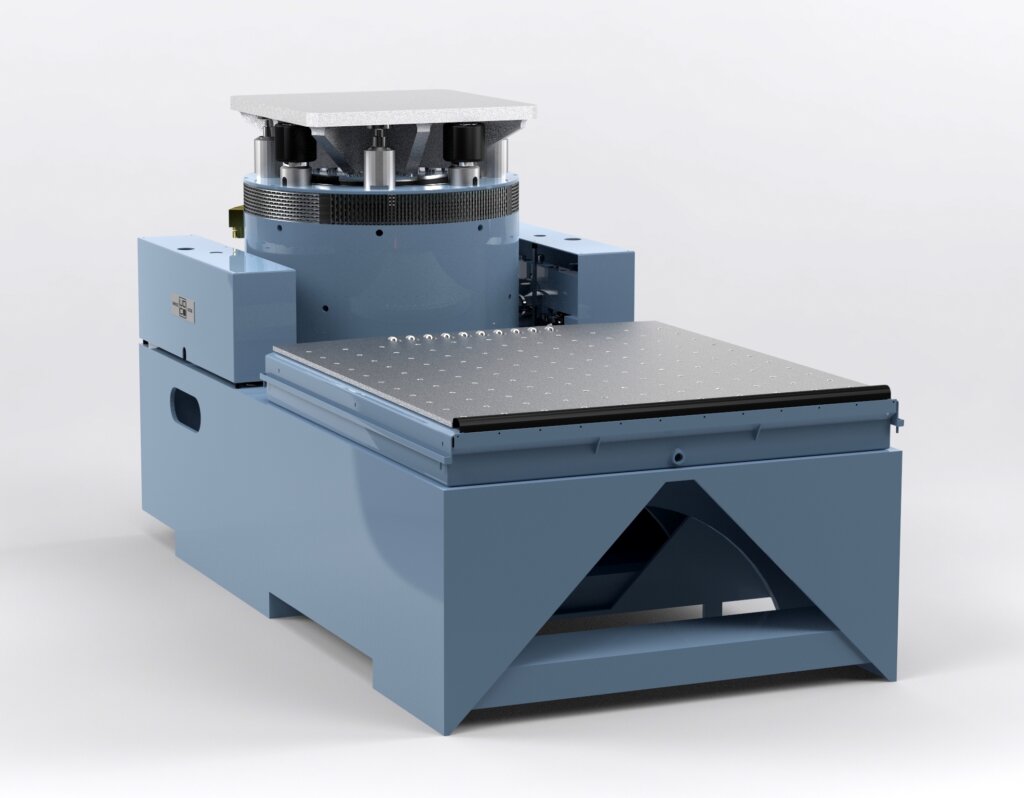
Electrodynamic Shaker for Shock and Vibe Testing
CUSTOM
One value-add that Austin Reliability Labs provides is the ability to help design and perform custom testing. We’re always happy to consult with our clients and determine if their specific use case calls for additional test measures. Everyone has had an experience with a less-than-responsive kiosk, be it at the gas station, ATM, or a temperature screening. Preventing those down moments and anticipating user behavior is our specialty. One custom test we designed and performed follows this exact principle, where we simulated over 2 millions clicks on a keyboard. It’s not hard to imagine the benefits of designing and performing a similar test to ensure the hardiness of a kiosk touch pad.
In conclusion, kiosks are an ever-increasing mainstay in our current environment. These kiosks help ensure our safety and convenience, and with proper planning and testing, we can ensure their continued reliability. If you have a kiosk or box build you’d like to consider testing, reach out to us today!
